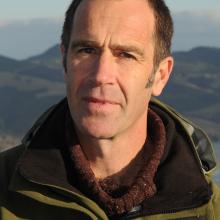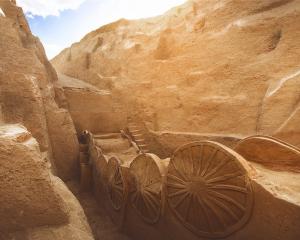

You have to admire their tenacity. At a weekend recently I removed a nest from under the eaves of our house. It was a big nest, and under that nest, there was some rusty iron and clear water ingress into the house. Yes, while I work in the community sector providing energy advice to residents, I am as guilty as the next person of poor home maintenance more often than I like to admit.
Home maintenance or home improvement is a big theme this weekend, with the Great Kiwi Home and Living Show on at Forsyth Barr Stadium. There you’ll find everything bright and shiny to turn your home into a castle. There, you’ll find everything green and sustainable to make your home warm and cosy. There, you’ll find touts of every persuasion telling you wonderful stories about their products and why they’d be so good for you. There, I might even find a way to stop birds building nests where they’re not wanted . . .
Spring bird nests and warmer temperatures are a good time to engage in maintenance and prepare necessary or desired improvements. At my own house, we are still engaged in the long process of making an old house a warm and cosy home.
Repairs to weatherboards will allow the final bit of wall insulation to be installed, along with building paper, for a warmer, dryer house. Double-glazing three more windows will mean we’ll be more than 90% double-glazed. All of this work is disruptive, but it is good disruption, as it makes our home healthier, saves us money in the long term and is good for the planet.

For those of you who didn’t know, there are carbon emissions related to the way we live in our homes. Heavy electricity use means high carbon emissions. This is
because the electricity industry still burns a sizable amount of coal and natural gas to produce electricity, particularly during peak demand. And in low-income households, which often means poor housing, emissions related to energy use tend to be high.
However, it can be difficult for residents and homeowners to make their way through the myriad of offers, good ideas and products for sale at events such as the home show. Salespeople address us through direct marketing or advertisements in the paper as well as events we choose to attend. So how can we make a good decision and make our energy dollar go further?
Luckily now in Dunedin there is a place to go for objective, expert advice. It’s also a place that doesn’t try to sell you a product. And it is part of a collaborative effort to make every Dunedin home warm and cosy by 2025. I see it as a hierarchy of community effort.
At its head is the Cosy Homes Trust (whose mission statement I’ve just quoted). Look out for the Cosy Homes stall at the home show.
Cosy Homes essentially pools the efforts of various groups with a stake in improving Dunedin and Otago homes for greater efficiency and greater impact. It is designed to be a first stop for information and help for Otago residents wanting to live in a warm and healthy home.
Behind Cosy Homes is a number of organisations which all support the vision. Some, such as the Dunedin City Council and the Energy Efficiency and Conservation Authority, provide funding to subsidise insulation for low-income residents. Others, such as the Curtain Bank, provide frontline services such as free curtains. I’m manager of the Blueskin Resilient Communities Trust, which supports Cosy Homes through a free Cosy Energy Advice telephone service, as well as Healthy Rentals Certification and Home Performance Assessment services for people wanting to plan a workable home improvement pathway. Collaborative effort is addressing fuel poverty in our city and region.
And why is this important?
It shouldn’t be difficult for us to understand the toll poor health takes on our youth and elderly, and how poor housing is a contributor to child poverty in New Zealand.
Winter illnesses cost us all dearly through high demand for our public health services and time off work. Health is a very important issue. So too, is our need to rapidly reign in carbon emissions, and we can do a lot by working to reduce heat loss in our homes and consuming sustainably.
If you want to invest for the future, whether through creating a healthy environment for your family, or a low-cost home to maintain, or to create the low-energy home of a climate hero, you now have access to independent, objective expertise that can help guide you along the way.
These aren’t salespeople, but people who will give expert help. And for those of you who are wondering how we’ve gone about it at our place: we started with a serious plan and suite of recommendations about 10 years ago and have been strategically investing ever since, as finances allow.
As our children have grown, our house has become warmer, dryer and healthier. We generate some of our own electricity and try to balance our energy needs. Summer is almost upon us, what better time to make a start? When expert advice is free, there’s no excuse to dilly-dally.
- Scott Willis is the project manager of Blueskin Energy Ltd. Each week in this column, one of a panel of writers addresses issues of sustainability.
What’s available
Community services available so that ‘‘Everyone lives in a warm and healthy home’’.
• Cosy Homes Trust: 021 999 395 or www.cosyhomes.org.nz
• Cosy Energy Advice free call: (03) 929 1323
• Curtain Bank: (03) 425-9678
• Healthy Rentals Certification: www.healthyrentals.co.nz/Free Home Performance Assessments in NEV and parts of Waitati and Long Beach: (03) 482-2048 or office@brct.org.nz













